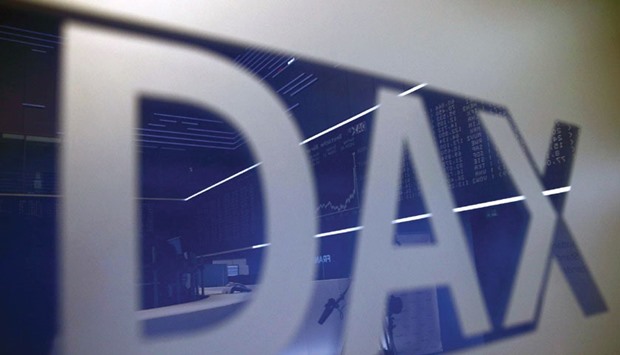Stock markets across the globe slumped and oil plumbed new depths yesterday as signs of a dramatic slowdown in powerhouse China put fright into investors about the outlook for the global economy.
Another cut in the value of the Chinese currency triggered a plunge in shares on Chinese exchanges, leading to the second suspension of trading on the Shanghai exchange this week.
The drop in the yuan sparked renewed fears about the health of the world’s second biggest economy and key driver of commodities consumption, sparking a heavy sell-off in Asia that swept across the world.
Officials and leading financiers also warned of the risks to the global economy and the threat of another dangerous market crash, with the World Bank cutting its global growth forecasts again.
The carnage in China seeped through to other Asian bourses. By the end of trading yesterday, Hong Kong had slumped more than three% and Tokyo shed 2.2%.
Across Europe, London’s FTSE 100 fell 2.0% at 5,954.08 points; Paris’ CAC 40 dropped 1.7% at 4,403.58; Frankfurt’s DAX 30 was Down 2.3% at 9,979.85. The EURO STOXX 50 slid 1.8% at 3,083.38. The Wall Street’s main indices were off around 1% in midday trading.
“The Chinese stock market, the Chinese currency and oil prices keep falling, taking investor confidence down with them,” said Jasper Lawler, an analyst at CMC Markets UK.
While plunging Chinese share values harm sentiment, Lawler said “the bigger source of uncertainty for Europe is over the People’s Bank of China’s continued devaluation of the yuan.”
“It’s probably inevitable that China’s exchange rate needed to fall to reflect its slowing economy, but it’s the speed of the current devaluation that has investors unnerved,” said Lawler.
“A slower pace of yuan devaluation would at least give investors and European exporters a chance to adjust to the new normal.”
The developments heaped further pressure on oil prices, sending New York’s main crude contract sliding yesterday to a 12-year low at $32.10 a barrel.
But gold was benefiting from its status as a haven investment, while a “rush to the safety of sovereign bonds is underway,” noted Brenda Kelly, head analyst at London Capital Group.
“The (German) bund is helping the euro retrace higher against the dollar and the pound,” she added in a note to clients.
The euro climbed to $1.0855, winning a boost also as official data showed that eurozone unemployment dropped to its lowest level in four years in November.
Investors are not the only ones concerned about swooning markets.
British Finance Minister George Osborne warned the economy faces a “dangerous cocktail of new threats” in 2016.
“We are only seven days into the New Year, and already we’ve had worrying news about stock market falls around the world, the slowdown in China, deep problems in Brazil and in Russia,” Osborne was to say in a speech to business leaders in Wales, according to pre-released remarks.
“Last year was the worst for global growth since the crash and this year opens with a dangerous cocktail of new threats.”
The World Bank also cut this week its forecast for global economic expansion in 2016 by 0.4 percentage point to 2.9%, citing “disappointing” growth in major emerging-market economies like China.
Meanwhile American financier George Soros warned that weaker world markets were showing signs of a financial crisis reminiscent of the 2008 crash.
A weaker Chinese yuan is “inflicting deflationary pressures” on the rest of the world, he told the Sri Lanka Economic Forum. “When I look at the financial markets, there I see a serious challenge, which reminds me of actually the crisis we had in 2008.”

The trading floor of the Frankfurt Stock Exchange is reflected in a DAX sign. European shares fell sharply yesterday after China accelerated the depreciation of the yuan, sending currencies across the region reeling and global stock markets tumbling.
